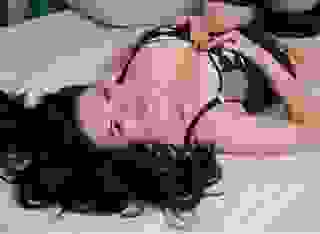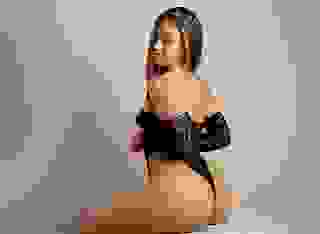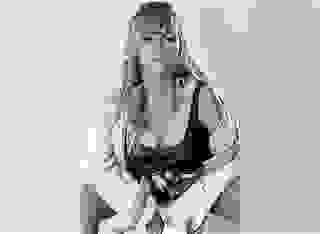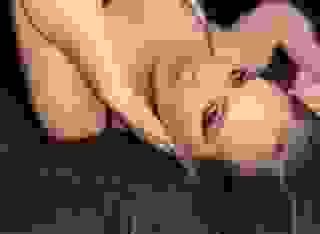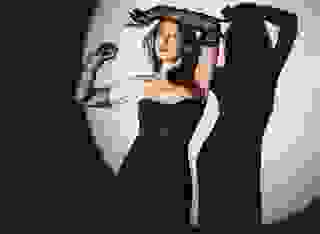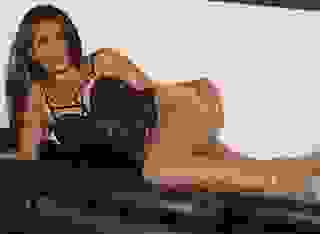Note: You can change font size, font face, and turn on dark mode by clicking the "A" icon tab in the Story Info Box.
You can temporarily switch back to a Classic Literotica® experience during our ongoing public Beta testing. Please consider leaving feedback on issues you experience or suggest improvements.
Click here"True, Welchmen, I have no need of archers, but are you so certain that I have any need of landless Flemish Counts, either?"
Just then, the six Black Knights near the bridge begin to move forward.
"Wellock, tell your men to stop their movement, or I will let fly at your Count!"
"They are not my Knights, Archer, I thought they were yours, so you tell them to halt!"
Though I cannot see behind me, I hear more horses gallop up, though they must have been silent coming up the hill to the church, as they were unheard until now.
There is the sound of many broadswords being drawn and other weapons being cast to the ground. I cannot see what is going on, as I darest not take my eye off the Count and my dear Lady ahead of me.
Suddenly, Alwen moves her head, her back is so restrained by the cord about her, that she cannot move it much. The Count, as if he has just been stung, drops the knife and moves away momentarily before trying to rock back behind my wife. It was such a tiny window of opportunity, and I did not for moment miss it, I released my arrow unerring towards its target.
30.
Pin prick
(Lady Alwen narrates)
I cannot move my head. The Count has me pinned to the block, his knife at my throat. I was so close to death, trusting my life so explicitly to my dear husband who has come prepared to die to rescue me.
The executioner deserved to die for what he did to poor Stephen. There was no just cause for the young man's untimely death. He is an innocent victim of the greed of those who will make or break kings for their own advancement or advantage. There was no trial, no witnesses called to testify against his summary conviction, and no charges even read out. It was murder pure and simple and the perpetrators must and will be brought to book and pay for this crime and any other they are found guilty of.
But I fear I am greatly confused by the cries of the various players involved. Clearly Will has brought his archers from the Castle. I cannot see them, but news of them sweeps through the crowd in front of the Inn, as they are seen emerging from the woods by the leet, but in their turn they seem to have been nullified by the traitor bowmen controlled by John of Wakefield, a rival archer that Will has oft told of in relating different incidents during the years on the road.
The Lord Wellock, and his thirty men I can just see from where the Count presses my head to the block. Somewhere behind me, by all account, there are the six or seven Black Knights that I saw yesterday. They have returned, yet I thought they were turned away, perhaps not as enemies but because there was no room at the Inn? But why return, yet sit out their waiting for ... what?
Now more Black Knights arrive, about twenty of them, but although they carry black shields and have swords drawn, they do not have helms, only cowls reminiscent of Monks or Friars. They are not a faction of the Knights behind the Count and I, as they are on our side.
They surprise and surround Wellock's men and, urging their surrender at sword point, many of Wellock's adherents immediately toss their weapons to the ground.
The Count has up to now held me gently, much more so than would be expected by a desperate and dangerous fanatic, bent on replacing the King with another. Even the knife he holds to my throat, though appearing close to my skin, is in reality an inch or so away and no threat.However, held in front of me as it is, it must appear to be deadly.
The Count is crouching down behind me and the oaken block, as though he has heard of the prowess of my husband's use of the longbow, and he winces strangely in his contortions as if he is in some extraordinary discomfort.
With the arrival of the armed Knight-Friars (how else am I to consider them?), I feel the Count relax.
Without hesitation, I move the needle with my tongue, a needle which I have held in my mouth since the guards collected poor Stephen and myself from the brew house this morning. I allow it to protrude beyond my lips and, biting down hard with my teeth, jab the point firmly into the Count's hand and jump up enough to present Will with a worthwhile target.
31.
Archeress
(Robin of Oaklea narrates)
At the foot of the hill rising up to the church we halt and the Friars dismount and start tying thick woollen socks on the legs of each horse.
"So we can approach quietly," Canon Ranulf explains, "the element of surprise is worth more than the element of gold."
I have to agree.
We remount and trot slowly up the hill wary of discovery. At the top of the hill, Ranulf dismounts again and he and I, joined immediately by Lady Elinor (who could stop her?), crouch down and go on foot to the brow of the hill and peer down on what is happening in my village.
Laid out in front of us are about thirty dismounted soldiers and their horses, about two hundred paces from us. In the garden on the right behind the inn are about thirty archers, being faced with another thirty archers standing between the woods and the leet.
Turning back to what is immediately in front of us, I can see that in front of the dismounted troops, by about ten paces, is a lone man in a cloak. He is clearly my father, William Archer, armed with a longbow and arrow pointing at a man who is holding Alwen down on a wooden block, with a knife at her throat.
From my high vantage point, I can see that he is indeed the Count. It would be a highly difficult shot, some 500 paces away, but it is possible that a lofted arrow, could take him out without hitting Alwen.
Question is, would I be confident in hitting him and missing Alwen?
No, in my nervous state, I am not.
There are two grisly bodies close to Alwen, one looked like an executioner I remember seeing a drawing sometime, maybe at Sunday school, and the other was wearing a tunic like the one that the Inn Steward Stephen would wear on a workday.
I look at Lady Elinor, she is keenly taking in the whole scene. Ranulf touches my arm and indicates that we move back. We do so, walking backwards, watching for any sign they have seen us. I now see there are more Black Friars by the bridge in front of the Manor House. Looking again, I see that they are actually armoured Knights, better equipped for all-out war even than we are.
The Augustinian Friars are suited for riding in quickly and joining the enemy in hand on hand combat, we certainly couldn't live through a hail of arrows sent with any degree of determination to stop us, but the Knights, yes, they could withstand a hastily mounted volley or two.
Back at the horses, I say to both Lady Elinor and the Canon Ranulf, "Lord Wellock is in charge of these men immediately ahead of us, I recognise his voice and heard him talking to my father."
"They are the traitors," Ranulf says, "I think we can take the men at arms in front of us out of the fight easily. Having the drop on them, they would be surprised and most would surrender immediately, knowing we had the upper hand. What worries me though are the archers on the right, they appear to be of two separate factions. But which is which?"
"The ones nearest the woods are on our side, I recognise some of the townsfolk. They have been trained by my father. He's the lone man with the longbow, standing about ten yards ahead of the group in front of us."
"I wondered if that is who the man was," grins Lady Elinor, "does he always enjoy taking on impossible odds or is he simply suicidal?"
"There's no such thing as impossible odds when it comes to my father and his love for Alwen, and I suppose the feeling is mutual."
"So, do you think your mother and father are mad or normal?"
"Oh, he's mad, completely mad where Alwen is concerned, but in our family this is considered quite normal."
She laughs.
"I don't know who the men in black—" I started.
"They're ours!" both Ranulf and Lady Elinor said together. Ranulf nods to Lady Elinor in deference, who continues alone. "The Knights in black are definitely on our side."
"How?"
"Because I know. Is not my word good enough, Robin?"
"Yes."
"Then mount up," says Ranulf, "Let us end this rebellion now."
We ride at a walk, slowly over the brow of the hill, those with well-oiled swords remove them silently from their scabbards, ready for use. The horses' hooves are still blanketed by the thick woollen socks, making our approach silent. Both Lady Elinor and I have fully loaded and drawn longbows. In no time we are immediately behind them.
Not having swords, Lady Elinor and I drift to the right, to keep out of the way and yet have a clear field of vision, with our bows ready to release our darts when they be needed. I remain on her left, between her and Wellock's traitors.
The ragtag army assembled on the hill, give in almost without a fight in the confusion. Those on foot near the inn, though, draw swords and run towards the Clerics.
Next to me, Lady Elinor looses off her arrow, which whizzes past my father and hits the flighted arrow my father has just released, knocking it off target, enough so both shafts whizz safely by The Count being no more harmful to him than a cooling breeze.
The Count recovers his wits, grabbing Alwen and his knife. In front him, my father already has another arrow nocked and ready to fire. Next to me the Lady Elinor is a little slower and is still lining up her arrow.
"I think they are here to support me," the shout comes from the Count, crouching low behind Alwen, sawing at her bonds with his knife, "and you too, Sir William, if you truly are still with the King."
"And why should I not be?" I hear my father say, his next arrow already nocked and ready to fire.
"Stop him Robin, please tell him stop!" Lady Elinor screams at me, "Trust me!"
I yell, "Father, stop! Hold that arrow!"
I see him tense. He cannot shoot when tensed, his aim cannot be perfect, and it must be perfect with Alwen in the line of fire...
"And why not, Robin?" he asks, coldly calm, his back still to me.
I hesitate, why? I trust Lady Elinor, but I know no answer that will satisfy my father. But Lady Elinor does.
"Because he is both my husband, Sir William, and my cousin, and as loyal as you are to the English crown, to my father King Henry!"
By now the six Black Knights have ridden up and place themselves in front of the Inn, between where the Count and Alwen lay and William Archer stands.
As one of the Black Knights steps his horse a single pace ahead of the others, he lifts his gauntlet covered hands to his helm to remove it. I notice a movement to my right. John Wakefield, has turned from facing the other archers across the leet and is pointing his arrow at the head of the Black Knight.
As I turn my head and torso, my bow and arrow point also follow my eye, I partly rotate my left arm so that the top of the bow dips towards my right shoulder, while the corresponding rotation of the foot of the bow sweeps it cleanly over the horse's head and, as soon as I bring the point to bear on my target, I release the arrow towards the rogue archer.
I see the arrow's flight in slow motion, the most important arrow I have fired in my life to date. I can see it bend and flex along its length as it absorbs and distributes the forces of energy imparted to it by the tensioned string. All the time the arrow shaft twists in a rotation along the axis of its travel, guided by the vibrating goose feathers fletched by my own hand at the notched end. The tip is an unbarbed iron point, a target arrow, designed to penetrate a straw target cleanly, with the minimal wounding of its fabric, to allow the target to survive a barrage of incisions while remaining intact.
They are the only arrows I carry.
I see the arrow tip hit flesh, exploding the left cheekbone as it strikes him, the point skidding upward into the eye socket and puddling the yielding flesh of his brain, the arrow shaft trembling for a moment at it tests the inner strength of the skull, as the kinetic energy invested in the arrow meets the inertia of rigid bone. But the stored energy triumphs over skeletal resistance and the back of Wakefield's head explodes out, splattering the men standing behind him in brawn, blood and bone splinters.
A second arrow hits Wakefield in his right eye, clean as a whistle without hinderance by cheekbone or brow. It was coming from a slightly lower trajectory than mine, which is from atop a horse plus a man's height up the church hill, so this fresh arrow traverses the brain just above mine to exit towards the thinner top of the cranium even more explosively, if that was possible. This arrow is tipped with a war arrowhead, having seen many of these in my father's workshop. It is a bigger, heavier arrowhead, twin barbed from tempered wrought iron, sharp as a knife, and designed to go through plate armour. This punches a hole in the skull like a horse nail through an eggshell.
But before that mighty weapon reaches the back of the skull, a third shaft thuds into Wakefield, precisely where his heart would be if God had ever granted that devil one. Another target arrow alike mine, but not from my bow. Wakefield's bow and as yet unreleased arrow drops from his lifeless fingers as the archer himself crumples to the floor.
Just for those few moments, there is no sound, not even a breath is taken or expelled. It only lasts a few moments.
Then it is like the tap of an ale keg is turned on full twist, to satisfy the thirst of an army.
The archers standing behind Wakefield suddenly sprout arrows like spring flowers and they wither like autumn leaves in a hail of iron, wood and feather from across the leet. Hardly any of the traitor archers released a meaningfully aimed arrow before death or disablement renders resistance redundant.
The men at arms outside the inn wash towards us like a neap tide, with pikes, swords, axes and maces held aloft, but five of the Black Knights and many of the Augustinian Friars ride in among them, hacking and stabbing on all sides, the air filled in a red mist like I imagine a beach slaughter of seals would resemble.
To the left of Lady Elinor and me, some of the surrendered men are picking up their discarded swords to join the fray. Together, the Lady and I fire shaft after shaft into those who have rearmed or those with clear intent to. Horses scatter, men fall, others hold up empty hands pleading for mercy, the rest laying dead or dying.
The stationary Black Knight drops his helm to the floor. In a clear and loud authoritative voice, he calls to the embattling assembly,
"I am your liege King, Henry of England and Normandy! Lay down your arms and plead for mercy now, or die in futile sacrifice!"
32.
Old score
(Sir William Archer narrates)
I cannot help but stare at John of Wakefield as he dies in front of my eyes. I felt sure I had killed him as soon as my dart left my heavy longbow, but there, before my arrow even struck, my enemy was already dead. I saw the other arrow hit, a familiar shaft that my son Robin made over the winter months, one that flew straight and true, even if, in his haste, his aim was a little off.
But when my eye follows my imaginary flight line from human target to bow, I am amazed to see Robin fire that amazing arrow from astride a huge moving horse, as if it was his preferred stance of choice!
How choked my throat is with emotion, my son safe and home again!
How much, over the recent days of worry about plague, Alwen and Robin, I have had to seal in a well sealed stoppered water skin containing a well of emotion inside my heart. To know he is safe almost brings me to tears. To see him fire a wonder shot as if that ancient bow was a part of him, will be an image I will treasure all my days.
And, even though my hands instinctively bent another shaft on my bow and securely nocked it on the nocking knot on my bow, then a third arrow hits Wakefield before he can even begin to drop dead to the floor. I only see it in my periphery vision, the corner of my eye, as I focus on the girl, not yet a woman but a mere girl, alike Robin in maturity, yet a consummate artist with a bow and arrow, also astride a giant horse that she'd have to shin halfway up a tree to mount. With her pale face and hair as dark a red as sunset on a storm cloud and displayed as a glowing frame around her face like a mini-peacock, she looks stunning.
Alwen! How fares Alwen? I turn. Between me and my beloved, who is now standing, free of her bonds, stands another black horse with its black clad knight. He has completed his unhelming, and my King, Henry of England is revealed, calling upon all who is treacherous this day to lay down their arms and plead for mercy.
Now he calls directly to me, "Your sword, man, behind you!"
As I turn, I step forward with my left foot towards the inn, to ensure my feet do not foul in the floor length cloak I wore to disguise my armament, and draw my sword in an arc. I see the glint of sun on tempered blade as it chops down toward my head, and threw myself further forward by pushing with both feet on the ground. I can feel the wind from the passing stroke of the blade as it passes a hair's breadth by me, while my right arm arcs around and rakes my assailant from groin to shoulder, but the blade skids harmlessly off his chain mail coat.
We square up. I slip the heavy cloak from my shoulders and step away from it puddling on the floor, while keeping a sword and a half length away from Lord Wellock.
He must have removed his helm earlier, but he is covered neck to toe and down to his metal gauntlets in mail, while I wear no armour at all.
Around us I can hear battle still rage, but between us is still, but for the rage I feel coursing through him. I remain cool as ice, blanking out all concerns other than my mantra that I can only fight one battle, one contest, one man, at a time.
He blows, while I breath shallow, easy, alert for any hint of movement, assessing how he holds his blade, the tightness of his grip, the tightness in his shoulders, the circles he describes with the thin dagger in his left hand. I have no dagger, only my bow and nocked arrow in my left hand.
As I had stepped to the left, when discarding my cloak, I take another step that way, followed immediately by another, decisive and determined, my knees bent, ready to react to an attack or feint, and ready to initiate if and when I choose.
I hold my sword handle low, below my centre of gravity, with the tip chest high, defensive, passive, inviting the charge. But he is wary. He has never seen me fight, and I never joust, though he may have spies watch me exercise at the Castle.
He will have heard that I bested the old Reeve, who was feared by legend well beyond his physical attributions, so he is mindful of that and careful.
So I raise my sword hand until the blade is level, both maybe a prelim to a thrust, or ready to lift and hack. All the time keeping myself loose with my body in balance, and slow dancing in a circle to my left until we have almost completed a full circle. My left foot rests on my velvet cloak and, as I slid my right foot, my left suddenly gives way on the cloak. My sword dips as both my knees bend low and Wellock fancies he has a chance.
Raising his right arm, he slices down with his sword aimed at my neck. As he does so, his natural balance forces his left hand holding the dagger upwards, leaving the left side of his body open but protected in the finest quality chain mail his wealth can buy. I cannot bring my sword arm up to parry the blow as all the momentum is with him. Pah! I don't even bother with the sword.
I spring my body forward using only my right leg, where I have apportioned my body weight from my left after the deliberate feint on the cloak that drew him in. As my chest moves towards his, I move my left hand, holding my bow, under his swinging arm, guiding my arrow point to the spot in his throat between chin and chain mail collar.
